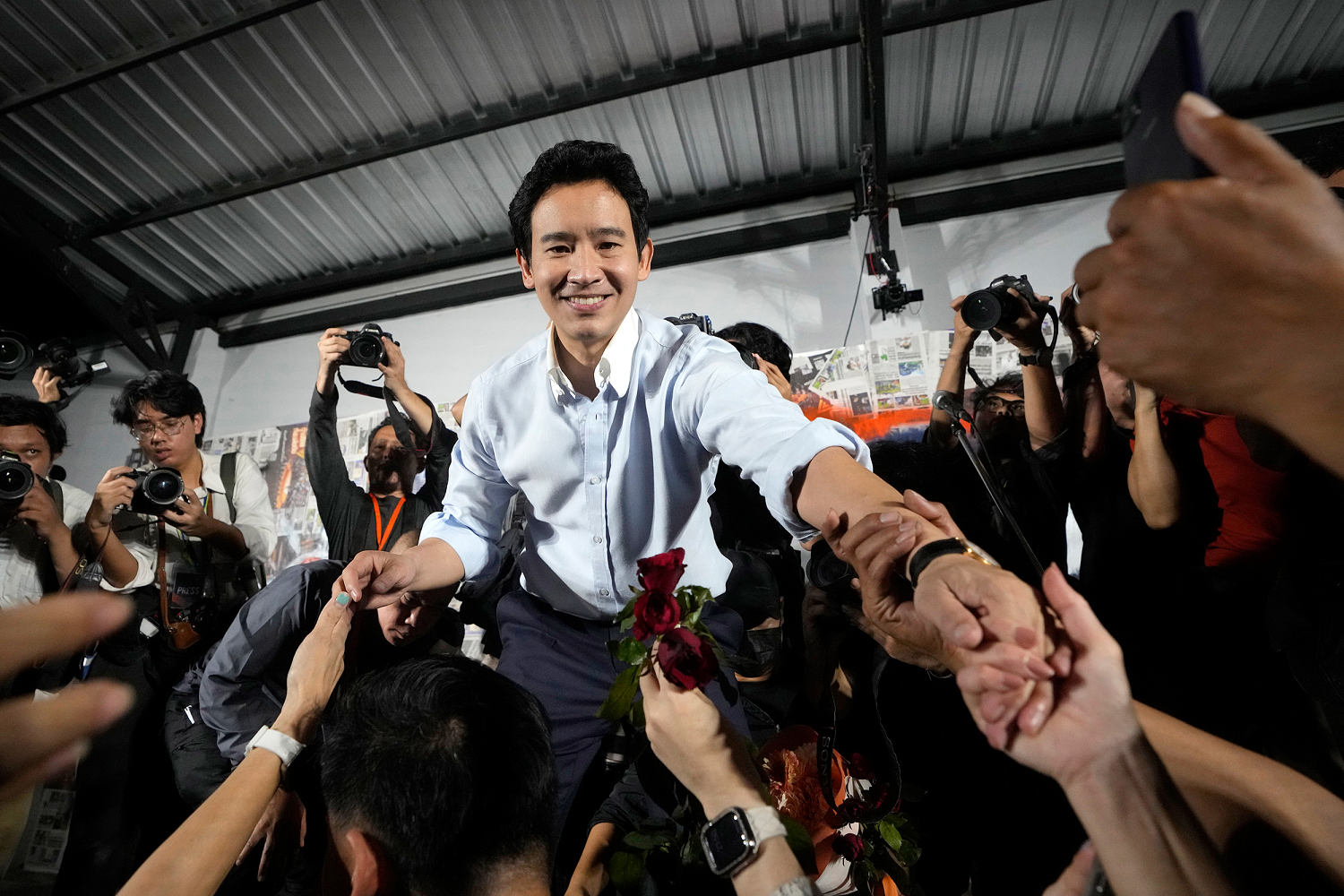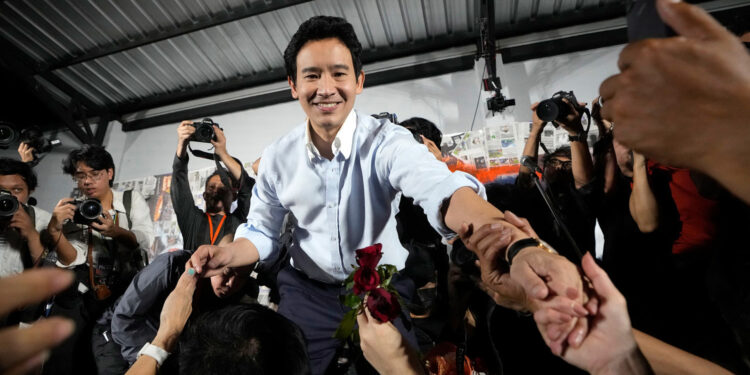
BANGKOK — A court in Thailand on Wednesday ordered the dissolution of the progressive Move Forward Party, which finished first in last year’s general election, saying it violated the constitution by proposing an amendment of a law against defaming the country’s royal family.
The Constitutional Court said it voted unanimously to dissolve the party because its campaign proposal to amend the law amounted to an attempt to overthrow the nation’s constitutional monarchy.
The Move Forward Party was unable to form a government after topping the polls because members of the Senate, at that time a conservative military-appointed body, refused to endorse its candidate for prime minister.
The Election Commission had filed a petition against the party after the Constitutional Court ruled in January that it must stop advocating changes to the law, known as Article 112, which protects the monarchy from criticism with penalties of up to 15 years in jail per offense. Move Forward has insisted that it wants to keep the monarchy above politics and not be exploited as a political tool.
The court on Wednesday also imposed a 10-year ban on political activity for those who held the party’s executive positions while it campaigned for the proposed amendment. Among them are its charismatic former leader, Pita Limjaroenrat, and current chief Chaithawat Tulathon.
Speaking to followers and the media Wednesday evening, Pita said although he had to say goodbye as a politician, he looks forward to continuing his work as an active citizen. He said people may be frustrated today, but he would like to ask them to vent their frustration at the ballot box in every election from now on.
He declared that he was “absolutely proud” of what he had achieved and had no regrets.
“I have left my dent in the universe. And I’ll make sure that I pass the baton to the next-generation leaders,” he said.
Lawmakers of a dissolved political party who are not banned from politics can keep their seats in Parliament if they move to a new party within 60 days.
Pita said party members will carry on “in a new vehicle” to be introduced Friday, although he will not be a part of it. The party declined to announce details of the changeover.
Move Forward had 148 lawmakers in Parliament. If they all move together, they will lose five seats belonging to the now-banned party executives.
“We’re going to stick to the same path. A political party is only a vehicle, so let’s wait and see the new party to which the MPs will be going,” said Attaphon Buaphat, who gathered with other party supporters at its headquarters in Bangkok.
“You can get rid of the agents, the representatives for these people’s beliefs, but you are not going to be able to get rid of the beliefs,” Attaphon, a 34-year-old political activist, told The Reporters, an online news service.
The court’s action was one of many that have drawn widespread criticism and are seen as part of a yearslong attack on the country’s progressive movement by conservative forces trying to keep their grip on power.
The party was denied power after the Senate refused to approve its then-leader Pita’s nomination as prime minister. Non-elected senators, who were given power to vote on prime ministerial candidates by the constitution adopted in 2017 under a military government, said they opposed Pita because of his intention to reform the royal defamation law. Move Forward was later removed from a coalition formed with the now-governing Pheu Thai party and became head of the opposition.
The court rejected Move Forward’s argument that it did not have jurisdiction to rule on the case and the petition filed by the Election Commission did not follow due process because Move Forward was not given an opportunity to defend itself before it was submitted to the court.
Human rights organizations and other advocacy groups expressed concern about the court’s ruling.
“The decision is not a surprise, and is unlikely to spur large-scale protests given that Move Forward MPs will remain a force in Parliament, albeit under a different banner,” Matthew Wheeler, a regional analyst for the Brussels-based Crisis Group, said in an email. “But the decision is a further illustration that the 2017 constitution, drafted at the behest of coupmakers and approved in a flawed referendum, was designed to curb the popular will rather than facilitate its expression.”
Prime Minister Srettha Thavisin has maintained that the Thai justice system is fair and impartial, and that the government cannot interfere with the judicial process.







